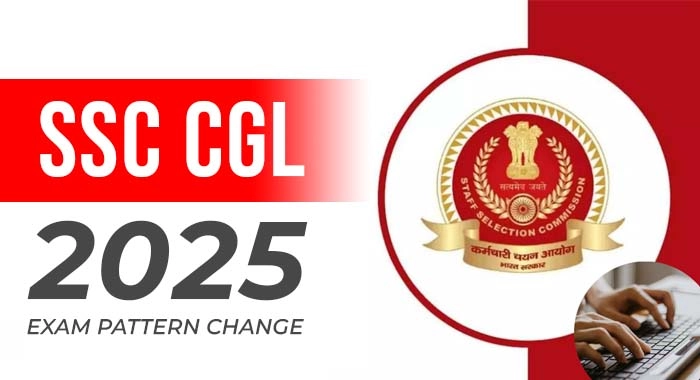Registration to Allotment – Your Ultimate Telangana AIAPGET 2025 Roadmap!


The Indian Institute of Technology Roorkee holds the responsibility to organize GATE 2025 during February as students can use their test results for both Master's program admission at IITs NITs IIITs CFTIs along with public sector employment opportunities. Candidates who want to prepare properly must know the GATE 2025 syllabus.
Table of Contents
Knowledge of the Civil Engineering syllabus lets students recognize the main themes that appear in the assessment. A comprehensive version of the GATE 2025 Civil Engineering syllabus exists below which delivers details about exam format changes that students can utilize for exam readiness.
GATE Civil Engineering Syllabus 2025 for General Aptitude:
GATE 2025 syllabus for Civil Engineering General Aptitude is used to test the analytical skills of aspirant candidates for verbal and numerical. It seeks to assess their capacity to read and interpret written materials, to analyze data, to find solutions and to deduce logically how they might lead to an outcome, skills that will be needed to succeed in many technical work.
| Category | Topics Covered |
|---|---|
| Verbal Aptitude | - English grammar - Vocabulary - Reading and comprehension - Narrative sequencing |
| Quantitative Aptitude | - Data interpretation - 2D & 3D plots, maps, and tables - Numerical computation & estimation: ratios, percentages, powers, exponents, and logarithms - Permutations & combinations - Mensuration & geometry - Elementary statistics & probability |
| Analytical Aptitude | - Logical reasoning (deduction & induction) - Analogies - Numerical relations & reasoning |
| Spatial Aptitude | - Shape transformations: translation, mirroring, rotation, and scaling - Assembling & grouping - Paper folding, cutting, and patterns in 2D & 3D |
GATE Civil Engineering Syllabus 2025
Candidate who appearing for GATE 2025 in Civil Engineering must have the knowledge of GATE 2025 Civil Engineering Syllabus and the pattern. For proper guidence of the syllabus is a necessary condition to succeed in preparation for the examination. GATE Civil Engineering Syllabus 2025 was published by IIT Roorkee uttrakhand. Syllabus provides a direct awareness of what and to what extent that information is included.
Based on the GATE 2025 Civil Engineering syllabus, the candidates can structure their things accordingly. paper will be prepared by the competent authorities on the basis of the syllabus prescribed. The GATE CE Syllabus will consist of two subject branches, General Aptitude and Engineering Mathematics, which will be provided in the GATE CE examination paper.
Following is a topic-wise summary of the GATE Syllabus 2025 in Civil Engineering to help the students who intend to secure a top score in the entrance examination. You are required to have a look at the GATE 2025 Civil Engineering Syllabus below and plan your preparation accordingly.
GATE Civil Engineering Syllabus 2025 for Mathematics
Linear algebra, calculus, differential equations, complex variables, probability and statistics, numerical methods, and transform theory are the seven major topics covered in the engineering mathematics section of the GATE Civil Engineering syllabus 2025. These issues are then split into corresponding subjects, as follows:.
| Category | Topics Covered |
|---|---|
| Linear Algebra | - Linear dependence and independence - Vector space - Matrix algebra, eigenvalues, and eigenvectors - Solution of linear equations (existence and uniqueness) - Rank |
| Calculus | - Mean value theorems - Theorems of integral calculus - Evaluation of definite and improper integrals - Partial derivatives, maxima, and minima - Multiple integrals - Line, surface, and volume integrals - Taylor series |
| Differential Equations | - First-order equations (linear and nonlinear) - Higher-order linear differential equations - Cauchy’s and Euler’s equations - Solution methods using variation of parameters - Complementary function and particular integral - Partial differential equations - Variable separable method - Initial and boundary value problems |
| Vector Analysis | - Vectors in plane and space - Vector operations - Gradient, divergence, and curl - Gauss’s, Green’s, and Stokes’ theorems |
| Complex Analysis | - Analytic functions - Cauchy’s integral theorem - Cauchy’s integral formula - Sequences and series (convergence tests) - Taylor and Laurent series - Residue theorem |
| Probability and Statistics | - Mean, median, mode, and standard deviation - Combinatorial probability - Probability distributions: Binomial, Poisson, Exponential, and Normal distributions - Joint and conditional probability |
GATE Civil Engineering Syllabus 2025 for Main Subjects:
To prepare well for the exam, candidates should know what’s included in the GATE 2025 Civil Engineering syllabus. Here’s a simple summary of the important topics you need to study.
| Subject | Topics Covered |
|---|---|
| Geotechnical Engineering | - Soil Index Properties - Behavior of Sand & Clay - Bearing Capacity of Shallow Foundation - Seepage Analysis - Effect of Water Table on Soil |
| Structural Engineering | - SFD (Shear Force Diagram) & BMD (Bending Moment Diagram) - Deflection of Beams - Kinematic & Static Indeterminacy - Combined Stress - Moment Distribution Method |
| Water Resources Engineering | - Hydrographs - Fluid Kinetics - Fluid Properties - Water Requirement for Crops - Turbulent Flow - Boundary Analysis - Open Channel Flow |
| Environmental Engineering | - Noise Pollution - Sedimentation Tank - Biochemical Oxygen Demand (BOD) - Mixing of Pollutants from Two Streams - Trickling Filter - Hardness of Water - Activated Sludge Process |
| Transportation Engineering | - Sight Distances - Cross-Sectional Elements - Types of Pavements and Their Characteristics - Highway Capacity - Marshall Mix Design - Traffic Control Devices |
| Geomatics Engineering | - Leveling - Traversing - Tacheometer - Error Measurement |
GATE Civil Engineering Syllabus 2025 Subject Weightage:
Candidates should carefully read the information and adjust their schedule of study accordingly. The following table shows the GATE Civil Engineering syllabus weightage.
| Subjects | Marks Weightage |
|---|---|
| General Aptitude | 15% |
| Engineering Mathematics | 10.5% |
| Irrigation & Hydrology | 5.5% |
| Fluid Mechanics | 9% |
| Environmental Engineering | 9% |
| Structural Analysis | 4.5% |
| Geotechnical Engineering | 16% |
| Transportation Engineering | 9.5% |
| Geomatics Engineering | 6% |
| R.C.C. | 5% |
| Steel Structures | 5% |
| Construction Materials & Management | 1% |
| Engineering Mechanics | 0.5% |
| Solid Mechanics | 3.5% |
GATE Civil Engineering Exam Pattern 2025:
Aspirants must prior to initiation of GATE 2025 preparation go through the complete syllabus of the exam pattern. In the light of the GATE 2025 exam pattern, candidates may be able to acquire comprehensive information regarding questions asked, time limit, marks obtained, and so on for the GATE exam.
| Particulars | Details |
|---|---|
| Mode of Exam | Online |
| Number of Questions | 65 |
| Duration of Exam | 3 hours |
| Pattern of Questions | - Multiple Choice Questions (MCQs) - Numerical Answer Type Questions (NAT) |
| Marking Scheme | - MCQs: 1-mark and 2-mark questions with negative marking for incorrect answers (1/3 for 1-mark, 2/3 for 2-mark) - NAT: No negative marking |
| Number of Sections | - Section 1: General Aptitude - Section 2: Engineering Mathematics and Core Discipline Questions |
| Topic-wise Weightage | - General Aptitude: 15% - Engineering Mathematics: 15% - Core Discipline Questions: 70% |
How to Prepare for GATE Civil Engineering 2025?
GATE Civil Engineering has three main sections, each needing a different study approach. Here’s how you can prepare:
-
Engineering Mathematics – This section carries 13% weightage. Focus on basic concepts and principles. Regular practice will help you improve your accuracy and understanding.
-
Civil Engineering Subjects – This is the most important section, covering six subjects from your graduation and carrying 72% of the marks. Review the syllabus, solve past papers, and focus on weak areas to score well.
-
General Aptitude – This section contributes 15% and tests vocabulary, grammar, reasoning, and numerical ability. Mock tests and practice will boost confidence and accuracy.
GATE Civil Engineering 2025 Exam eligibility criteria:
| Criteria | Details |
|---|---|
| Nationality | Indian citizens and candidates from other countries are eligible. |
| Academic Qualification | Must have completed or be in the final year of a Bachelor’s degree in Engineering/Technology (B.E./B.Tech.) or equivalent. |
| Qualifying Degree | B.E./B.Tech./B.Arch. or relevant discipline. |
| Age Limit | No age limit to appear for the GATE exam. |
| Year of Completion | Candidates must have completed their qualifying degree in 2024 or earlier or be currently studying in the final year. |
| Number of Attempts | No restriction on the number of attempts. |
Comments (0)
No Comments Found
FaQ's
-
Is there any change in the GATE CE syllabus for 2025?
As of now, no major changes have been announced in the GATE CE syllabus 2025. However, candidates are advised to refer to the official GATE brochure for updates.
-
Does GATE Civil Engineering include Geomatics?
Yes, Geomatics Engineering (surveying and GPS-related concepts) is a part of the GATE Civil Engineering syllabus and holds decent weightage.
-
Is General Aptitude part of the GATE Civil Engineering syllabus?
Yes, General Aptitude is common for all GATE papers and carries 15 marks. It tests verbal ability, numerical reasoning, and analytical skills.
-
Where can I download the official GATE Civil Engineering syllabus PDF?
You can download the official GATE CE syllabus PDF from the official website: https://gate.iisc.ac.in
-
Is there negative marking in GATE CE?
Yes, for MCQs, 1/3 mark is deducted for a 1-mark question and 2/3 for a 2-mark question. MSQs and NATs have no negative marking.


































